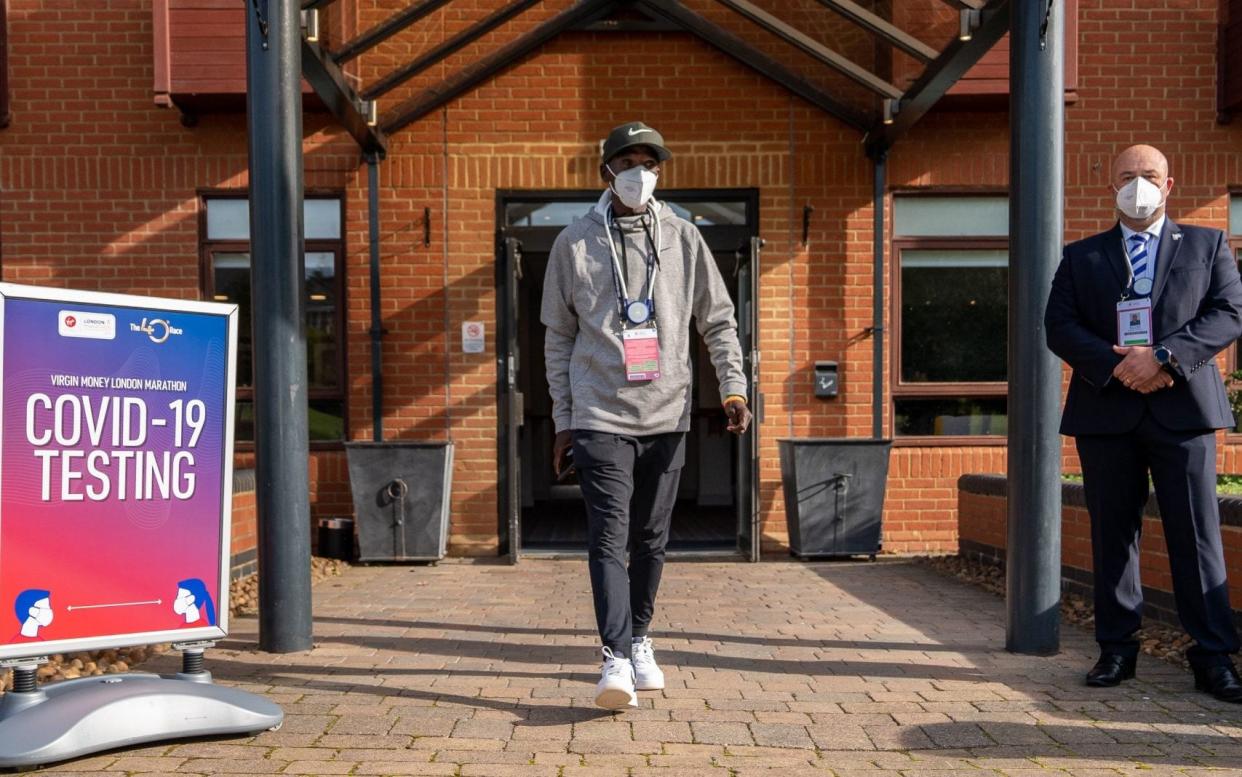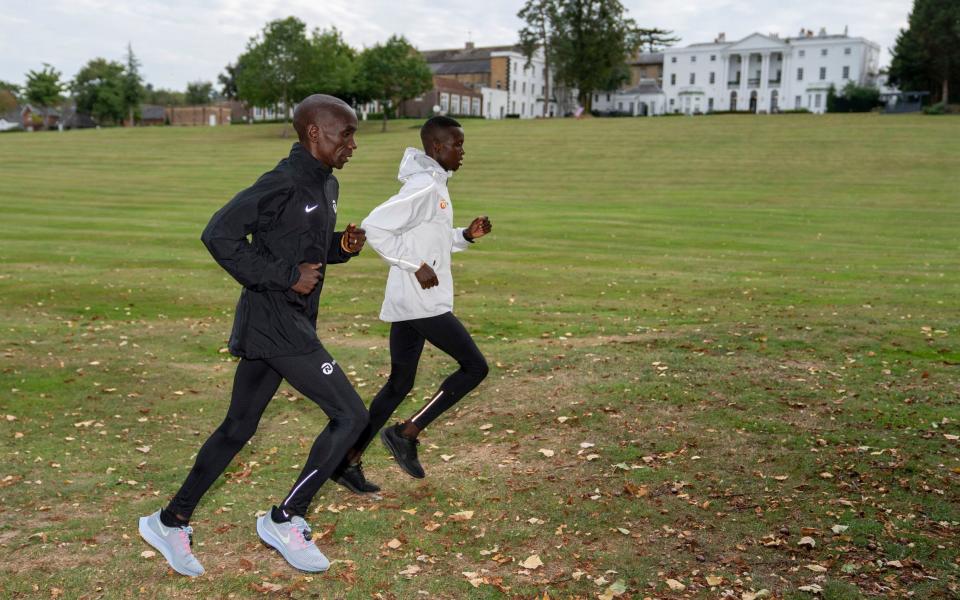London Marathon hit by first coronavirus withdrawal as fifth-fastest woman tests positive

London Marathon organisers are hoping world records could be broken in Sunday’s unique St James’ Park edition of the famous race, as they revealed the fifth-fastest woman in the field had become the first athlete to withdraw after testing positive for Covid-19.
Ethiopian Degitu Azimeraw set the course record when winning last year’s Amsterdam Marathon on her debut over the distance, but did not board the private plane chartered by the London Marathon from her home country after failing a coronavirus test.
Every athlete is tested four days before leaving their home, again on arrival in Britain and a third time on Friday. Once in Britain, everyone involved in the race must remain within the 40-acre grounds of the official London Marathon hotel and wear face coverings when not eating or training.
Haji Adilo, a coach to Ethiopian runners Shura Kitata and Alemu Megertu, also tested positive prior to the flight from Ethiopia and did not travel.
“The two athletes connected to him had no face-to-face contact with him in the last two weeks,” said Hugh Brasher, London Marathon race director. “Had they spoken? Yes, by telephone. You don’t catch Covid down a telephone.
“The other athlete [Azimeraw] wasn’t training with other athletes that are in our group. So there was absolutely no need [for further measures]. Should there have been, we would have taken measures until further tests had been done.”

With the mass participation run taking place virtually due to the coronavirus pandemic, this year’s elite-only race will take place on a 1.34-mile looped circuit around St James’ Park. Barriers will be erected and security will patrol the perimeter to prevent people trying to watch as the runners complete 19.6 laps.
The course was originally devised for Eliud Kipchoge’s attempt to break the two-hour marathon mark last year, but was ditched in favour of Vienna due to the uncertainty of British weather.
With Kipchoge and Kenenisa Bekele - the two fastest men in history - doing battle, and world record holder Brigid Kosgei heading the women’s race, there remains significant hope that the super-fast course could provide more world records on Sunday. Yet again, the weather forecast suggests rain could prove an impediment.
“Heavy rain is not ideal conditions to do a world record in,” said Brasher. “You want light winds and dry conditions. So we're doing the opposite of a rain dance.
“We have some athletes in great shape. But they’ve all been training in unique conditions and we can’t control the weather, so it is probably the most difficult marathon to predict.
“Whatever the conditions, I believe there will be some incredible racing that will live long in people’s memories. And it could be incredibly quick.”


